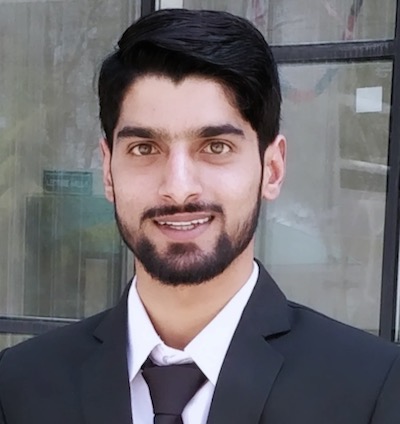by Gazi Muzamil
Late marriages, driven by cultural taboos, societal pressures, and failed unions, exposing collective duplicity, now pose grave moral, mental, and social challenges in our midst.

On the ninth day post her divorce, Asma, a 33-year-old with a PhD, sits in contemplation on her balcony, casting a despondent gaze upon her thirteen-month-old baby. The toll of her recent ordeal is evident on her once-vibrant countenance, now marked by pallor and dark circles. A palpable disinterest in daily activities has settled upon her, and her appetite has waned, all in the wake of shattered dreams. As her younger sister opens the main door, she remarks, “She’s still grieving her divorce.”
Asma resides in South Kashmir and shares the harrowing details of her marriage, which ended a mere week ago due to her husband Aftab’s extramarital affair. Her travails during pregnancy, marked by neglect from her husband and in-laws, led to the loss of one twin in utero, while the surviving baby was born with mental disabilities. Enduring societal criticism and blame for her child’s health condition, the infant spent his initial eight months in the intensive care unit.
In reflecting on her experience, Asma laments, “Kashmir is a society where male dominance shapes the trajectory of relationships.” This statement illuminates the prevailing influence of men in determining the course of relationships within the region.
“I’ve lost faith in the institution of marriage. I’ll never consider remarrying. My only concern is…” She pauses, casting a glance towards her child surrounded by toys in the corner.
Marital breakdowns in Jammu and Kashmir are a growing concern, with a reported 0.34 per cent divorce rate in the 2011 census. Recent years have seen a significant increase in divorce cases. Sociology professor Shahnawaz Ahmad Khanday attributes this rise to the fast pace of life, population growth, and extended life expectancy. Unfairly blaming infertility, especially on female partners, plays a substantial role in unsuccessful marriages. Sabreena, 28, experienced divorce due to false accusations from her in-laws in Srinagar about her alleged infertility, despite medical evidence proving otherwise.
Another factor leading to marital discord is asking wives to prioritise the needs of their in-laws over their well-being. Yusra, 30, recounts her experience where her primary responsibility was caring for her two children while being compelled to attend to her husband’s parents. “I did my best but fell short of my husband’s expectations. I was abused and eventually divorced for failing in the role of caretaker for my husband’s parents,” she says.
Jozey, 28, who married in 2021 in Shopian, shares a distressing experience of an arranged marriage that turned into a nightmare. “The problem was getting married to someone I had never met before,” she says. Her spouse, working in the fruit industry, has prompted her to seek refuge at her brother’s home for a year, awaiting her husband’s divorce demand of Rs 500,000.
“Arranged marriages are scary. He would come every night between 12 and 2 am, and when I protested, he would abuse and beat me,” she reveals. “My marriage was a disaster. He would make fun of me for coming from a middle-class family.”
When questioned about the absence of legal intervention, she states, “We are compassionate people; they possess substantial wealth and influence.” Adding, “My brother will now sell a house our father built for us to offset my divorce.”
Furthermore, domestic violence, family interference, incompatibility, and drug addiction are identified as supplementary factors contributing to marital breakdowns in the region.

Professor Shahnawaz underscores the imperative of recognising that marriage involves both peaks and valleys, necessitating compromise. “There’s a glamour associated with our youth. The romanticised portrayal of love and compatibility, perpetuated by media and the virtual realm, leads them to believe that marriage is solely grounded in passion and infatuation,” he notes. “Our youth is driven, always on the move, ensuring all their needs are met. Marriage, however, entails a process of concessions.”
Sajad Ahmad Mir, a prominent advocate at Jammu, Kashmir and Ladakh High Court, highlights the surge in matrimonial disputes witnessed in courts in 2023. “Couples bring minor concerns to court, yet due to emotional manipulation, ego clashes, or unwarranted interference from in-laws, these minor issues escalate into major disputes.”
Mir attributes the primary cause of disputes among working individuals to husbands resisting their wives’ employment and wives rejecting joint-family living arrangements with in-laws. “What’s surprising is that couples often neglect to discuss these matters before marriage, allowing them to burgeon into significant marital conflicts,” he remarks.
“We had to be realistic,” recalls Professor Shahnawaz, emphasising the importance of acknowledging differing marriage expectations. Sustaining a robust marriage demands commitment, understanding, compromise, and ongoing efforts from both partners. It’s crucial to recognise that once committed, the responsibility lies with both parties to maintain smooth relations, steering clear of unnecessary complications.
Seeking Resolution
In today’s accelerated society, couples often grapple with finding time and energy to address their differences amicably. “Women tend to be more motivated than men to resolve marital issues,” notes Professor Shahnawaz, highlighting the persistent influence of a patriarchal mindset among men.
Advocate Sajad emphasises the necessity for couples to engage in pre-marital discussions, covering key aspects such as the woman’s inclination towards post-marriage employment, preferences regarding joint family living, the mutual agreement leading to marriage, and potential familial pressures. “Discovering satisfying answers to these questions at the right moment significantly reduces the likelihood of future marital conflicts,” he remarks.
Sajad further suggests that couples should consider seeking marriage counselling to pinpoint the root cause of their problems and actively work on improving their marital relationship, instead of opting for separation.
Post Divorce
A study by Muzamil Jan and Asma Hyder examines the challenges faced by divorced women in Kashmir across social, economic, cultural, and psychological dimensions, surveying 600 divorcees from rural and urban areas.
Findings reveal that 38.3 per cent in rural and 37.4 per cent in urban areas feel sadness about their divorce, while only 13.3 per cent in rural and 15.3 per cent in urban areas express pride. A sense of carelessness is reported by 51.7 per cent in rural and 51.3 per cent in urban areas.
Remarrying is hindered by societal biases against divorcees. Professor Shahnawaz emphasises the emotional nature of marriage, urging justified sacrifices and, if necessary, letting go. Jozey highlights the social stigma faced by divorced women and the sacrifices required for a second marriage.
Way Ahead

Marriage demands careful consideration, representing a lifelong commitment beyond a mere civil contract. Rushing into this significant choice can lead to detrimental consequences, and understanding ourselves and potential partners is crucial, says Professor Shahnawaz.
He emphasises that remaining single is preferable to entering a failed marriage, noting that financial security alone does not guarantee contentment. Hastily entering marriage without understanding partners and responsibilities contributes to numerous failures, impacting societal well-being and exacerbating mental health issues.
Professor Shahnawaz criticises influential platforms for neglecting this issue, urging collective introspection to foster successful and happy marriages. He highlights the importance of a contented family as the bedrock of a thriving society.
Note: Except for experts, all names have been changed.
(The author, a law student, can be contacted at [email protected]. Ideas are personal.)
Scroll the DEBATE.















